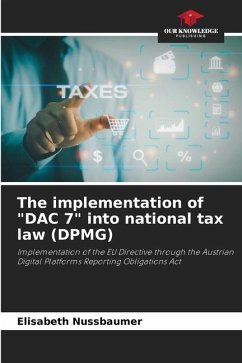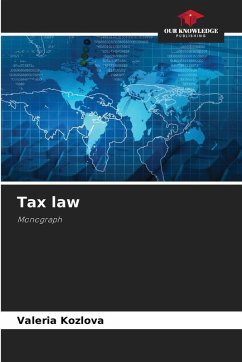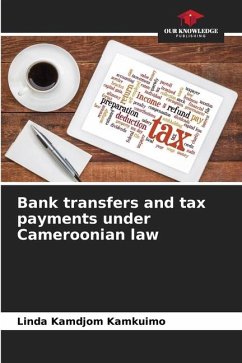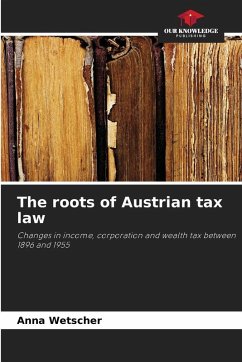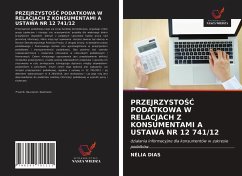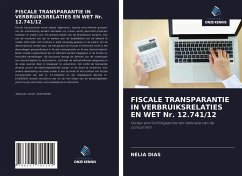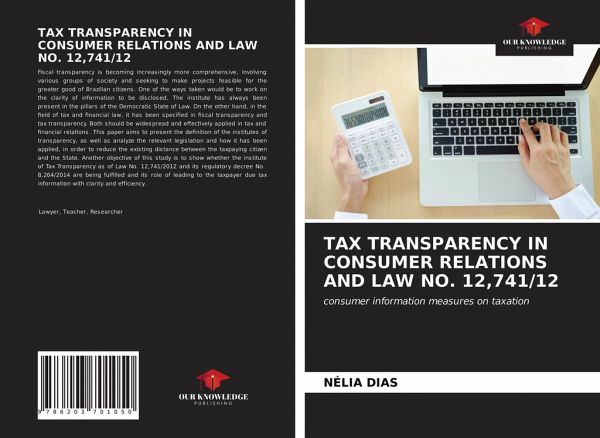
TAX TRANSPARENCY IN CONSUMER RELATIONS AND LAW NO. 12,741/12
consumer information measures on taxation
Versandkostenfrei!
Versandfertig in 6-10 Tagen
36,99 €
inkl. MwSt.

PAYBACK Punkte
18 °P sammeln!
Fiscal transparency is becoming increasingly more comprehensive, involving various groups of society and seeking to make projects feasible for the greater good of Brazilian citizens. One of the ways taken would be to work on the clarity of information to be disclosed. The institute has always been present in the pillars of the Democratic State of Law. On the other hand, in the field of tax and financial law, it has been specified in fiscal transparency and tax transparency. Both should be widespread and effectively applied in tax and financial relations. This paper aims to present the definiti...
Fiscal transparency is becoming increasingly more comprehensive, involving various groups of society and seeking to make projects feasible for the greater good of Brazilian citizens. One of the ways taken would be to work on the clarity of information to be disclosed. The institute has always been present in the pillars of the Democratic State of Law. On the other hand, in the field of tax and financial law, it has been specified in fiscal transparency and tax transparency. Both should be widespread and effectively applied in tax and financial relations. This paper aims to present the definition of the institutes of transparency, as well as analyze the relevant legislation and how it has been applied, in order to reduce the existing distance between the taxpaying citizen and the State. Another objective of this study is to show whether the institute of Tax Transparency as of Law No. 12,741/2012 and its regulatory decree No. 8,264/2014 are being fulfilled and its role of leading to the taxpayer due tax information with clarity and efficiency.





